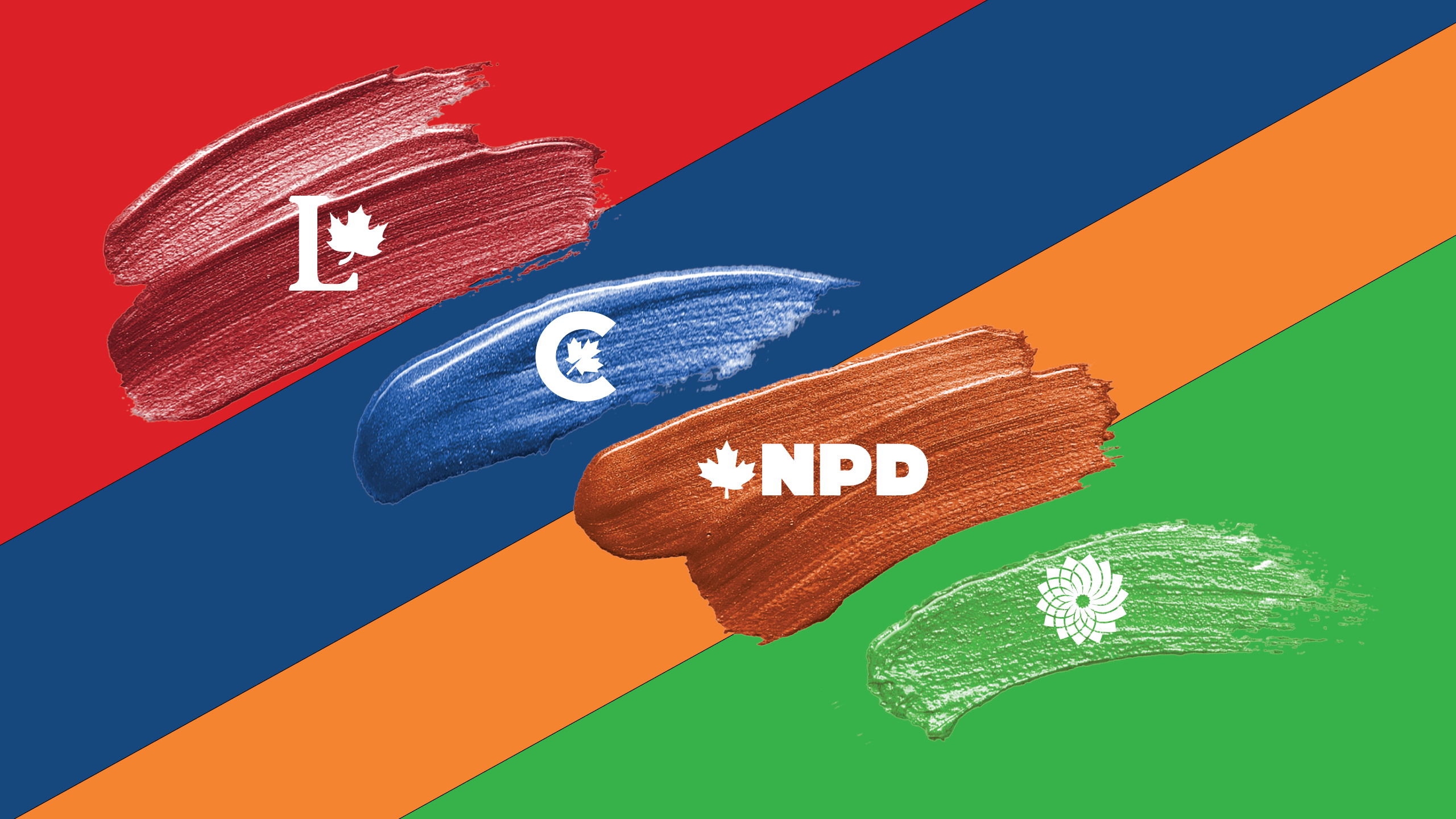By Brett Porter
In less than two weeks, eligible voters will head to the polls on Sept. 20 to help decide the makeup of the next federal government.
Despite a chronic underrepresentation in politics, The Globe and Mail reported millennial and Gen Z Canadians now make up 40 per cent of the electorate—meaning that the voting power of young Canadians matters more now than ever.
With a variety of critical issues on the ballot—including climate change, COVID-19 economic recovery, and housing affordability—the arts and culture sector is an often-overlooked aspect of parties’ platforms.
After all, who hasn’t benefited from the arts throughout the last year and a half? The Eye took a look at the candidate’s stances below.
Liberal Party of Canada
According to the Canadian Arts Coalition (CAC), if re-elected, Justin Trudeau’s Liberal Party would extend previously implemented supports, such as the Canada Recovery Hiring Program and COVID-19-related insurance coverage for media production businesses.
The Liberal party would also permanently increase funding to a slew of different art funds and organizations.
This includes Telefilm Canada by $50 million, the Public Lending Right Program, an organization that sends yearly payments to creators whose books are in Canadian public libraries, by $43 million and the Indigenous Screen Office by $13 million, a program that promotes storytelling on film.
Federal contributions for the Canada Music Fund would also increase to $50 million annually by 2024-25.
To address arts-related equity concerns, the Liberals have pledged to develop a new $50 million program dubbed the “Changing Narratives Fund” to empower racialized creative professionals.
CBC/Radio-Canada would also receive an additional $400 million over four years to eliminate private advertising on public affairs-related content, the CAC reported.
Conservative Party of Canada
The Conservative Party of Canada, led by Erin O’Toole, plans to mandate that digital streaming companies reinvest a portion of their annual gross revenue into original Canadian content production, with a certain portion being designated for French-language programming.
According to the party’s official platform, the Conservatives would also review the mandate of CBC English Television, CBC News Network and CBC English online news to explore the viability of “refocusing the service on a public interest model like that of PBS in the United States.”
PBS is a private, nonprofit media enterprise owned by a variety of public television stations and is reliant upon user fees. Formerly, while running for the Conservative Party leadership, O’Toole endorsed defunding CBC digital operations and CBC English TV.
The Conservatives have also pledged support for Canada’s historical monuments and would offer $75 million in grant funding over five years for municipalities to repair and restore heritage projects.
New Democratic Party
Jagmeet Singh’s New Democratic Party (NDP), per their official site, has committed to creating a “rebuilding package” for the arts sector to support Canadian talent—both on digital and traditional media platforms. If elected, the party would hike corporate taxes on web giants like Google and Netflix.
The CAC reported Singh is also promising additional resources for Indigenous theatre at the National Arts Centre in Ottawa, in addition to reduced income taxes for artists and cultural workers hit hardest by the pandemic.
CBC/Radio-Canada would see a boost in long-term, stable funding under the NDP plan. Additionally, the party has committed to modernizing the Broadcasting Act to address the threat of foreign media competition to Canadian artistic professionals.
Green Party of Canada
The Green Party of Canada, led by Annamie Paul, would broaden the federal arts budget. Paul plans to increase funding to Canada’s arts and culture organizations, including the Canada Council for the Arts and Telefilm Canada, by $1 billion over three years.
The party platform also promises to reform the Canada Revenue Agency to reduce income taxes for arts and culture workers.
To support Indigenous artists, the Green Party also plans to provide $100 million in funding over three years for the conservation of Indigenous art forms.
According to the CAC, the party’s platform also outlines a “stable base of funding” for the CBC to support programming in Indigenous languages while offering protection for the intellectual and artistic property rights of Indigenous creatives.
Elections Canada will not be hosting the Vote on Campus Program this year, which debuted in 2015, citing pandemic-related concerns.
For Rye students interested in registering to vote or learning more about Election Canada’s COVID-19 safety protocols, visit the Elections Canada website.













Leave a Reply